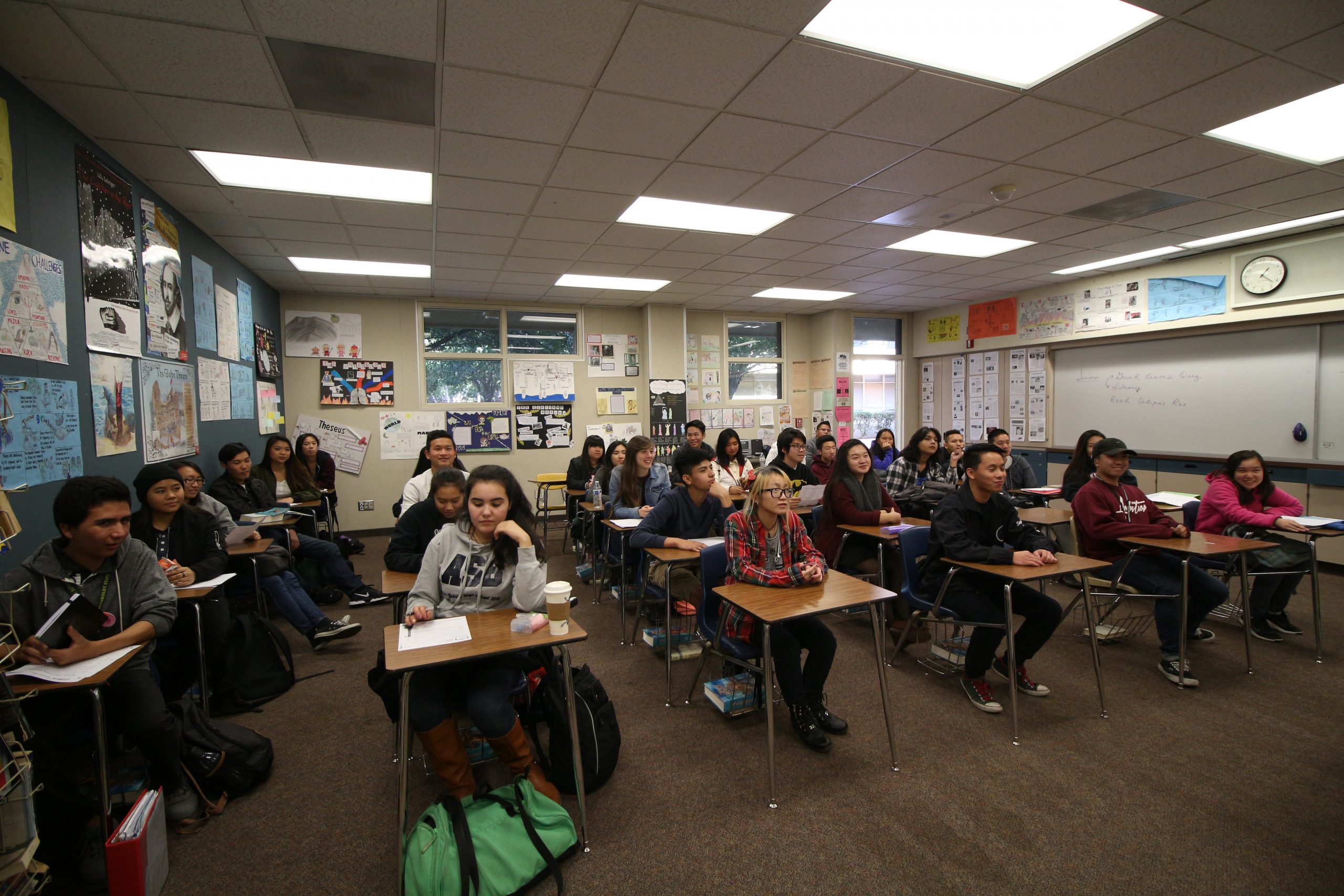
Teachers unjustly impose views on students
A teacher’s words have the tremendous power to influence students’ beliefs. When discussions about politics, race, sexual orientation, religion, class, or any other controversial issue come up in the classroom, it is critical for teachers to tread the fine line between merely sharing their personal views and forcing them onto their students. As educators, they must remain objective in their teachings to ensure a safe learning environment for students.
High school students are at an age where they start to form opinions apart from those of their parents, oftentimes drawing ideas from their peers and adult figures. A significant portion of their time is spent with their teachers, and during this time, a lot of what teachers say can shape how they think. If teachers impose their beliefs, intentionally or not, they are taking advantage of their position of authority because students trust them. Students may be easily persuaded to believe that their teacher’s particular view is the only valid view.
When teachers impose their personal views, it can create an uncomfortable situation for students with differing opinions. The student may feel afraid to express their thoughts because they feel that their teacher will dislike them for going against their beliefs. This can lead to resentment toward the teacher for making them feel belittled, fostering a strained relation between the two. The student may lose respect for the teacher and become disengaged in the classroom, which can result in a decline in academic performance and participation.
There are those who will argue that teachers cannot ignore the issues of today’s society and should address them. Yes, it is necessary for these discussions to happen, as it is the school’s responsibility to prepare students to engage with what is going on in the real world, but this does not justify a teacher’s efforts to preach their opinions. The teacher can approach the topic with a neutral stance and choose not to enforce their personal views about it.
If the teacher chooses to share what they think, it is possible for them to do so without crossing the line of bias by presenting all perspectives of the issue with adequate factual information. According to the Alhambra Unified School District Board Policy 6144, “without promoting any partisan point of view, the teacher should help students separate fact from opinion and warn them against drawing conclusions from insufficient data.” They must provide students the tools and opportunities to disagree and voice their thoughts. This way students are not disillusioned to believe one side and are given resources to formulate their own opinion.
It is the teacher’s job to teach students how to critically think and evaluate different views. Respecting others’ opinions is an essential life skill—one that students can learn given an all-inclusive classroom space. They see the reality that they will encounter other people in life who have vastly different views than their own. By teaching students how to partake in a civil conversation when that happens, they learn how to defend their stance without offending anyone. For that reason, teachers should be careful to not impart their views on their students.